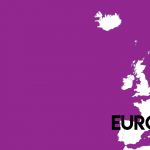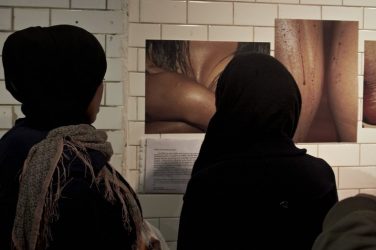Most recently played by former MEP József Szájer, the character of the ‘gay homophobe’ is a well-worn trope. The story of the bigoted closet case salaciously exposed elicits both Schadenfreude and smugness. However, E&M editor Sarah Gerwens argues that it rests on homophobic stereotypes and does little to advance LGBTQ+ rights.
When Hungarian MEP József Szájer was apprehended by Brussels police leaving a “gay orgy” in the midst of the autumn 2020 lockdown, many sneered and some wrote about it (including E&M). It was Hungarian MEP and member of the staunchly homophobic Fidesz party József Szájer, after all. Going to a ‘gay party’! With drugs! And naked men! The spectacle!
After the spectacle came the think pieces and with the think pieces came a well-worn trope: the saga of the gay homophobe. A person in power, often a man, known for his anti-LGBTQ+, views is outed, usually without his consent. What this narrative obscures, however, are both the homophobic stereotypes contained within and its systemic implications.
This is not an article about Szájer. Those have already been written. I am not here to speculate about his gayness or straightness (or bisexuality, anybody?) nor his marital arrangements. Queer people are people. And people can be both perpetrator and victim. They can hold all kinds of conflicting identities and views and yes, some people make homophobic additions to the Hungarian constitution and also attend parties where men have sex with men. The latter does not make the former any less harmful, but it also does not explain it.
No matter what the ‘gay homophobe’ story and its close cousin, the self-loathing gay, might imply, queerness does not make you homophobic. Homophobia makes you homophobic. Narratives that suggest otherwise veer dangerously close to once again associating gayness with shame, something you have to bury so deep it will only seep out as hatred. They seem to allude that there is something deceitful, potentially depraved, about being gay that needs to be forcefully outed qua sex scandals or orgies or affairs or male sex workers unearthed and splayed across the tabloids. But no one owes the world disclosure about who they sleep with.
Instead, maybe we take a look at the system that teaches people so much self-contempt they internalise their own marginalisation. When ‘gay’ is an insult, it takes guts to claim it for yourself. When it’s illegal, it might take your life. Centring queerness rather than homophobia in the story of the gay homophobe shifts both blame and agency. “I bet he is secretly gay” can distract from how he’s openly homophobic. Masquerading as liberal light-heartedness, it also mobilises the age-old strategy of discrediting someone because of their (suspected) sexuality.
There is -phobia (choose your prefix) in the LGBTQ+ community, too, of course, but I have to say, it’s a smart move, dear straight people: if we believe every, or many, homophobes are gay, they are no longer your problem. Yet, while we’d gladly take some of your privilege, you can keep your homophobes to yourself.

‘You have to admit, it’s funny though’, some might say, it was an absurd kind of hypocrisy in a painfully serious year. I, too, can see the irony of the ‘gay homophobe’, and a grown man climbing down a drainpipe, escaping a sex party and running from the police is a rather comedic image.
Having to take hatred seriously hurts. However, there is little that is funny about a homophobe. There is little that is funny about a man having sex with a man. Even if both happen to be the same person. While humour helps to destabilise power, it only works if we laugh at those actually in power, while they’re in power; not when they’re running away from an orgy.
So, who is left, after the ‘gay homophobe’ has been uncovered and removed? All the other homophobes, it turns out; at worst with their stereotypes confirmed, at best confronted with a brief moment of reckoning. What has happened will be ruled “unacceptable and indefensible” and queer communities will remain unaccepted, undefended.
Ultimately, Szájer is not the greatest hypocrite in this saga. That title belongs to a trope that cares most about homophobia when it’s perpetrated by a queer person.
Cover photo by Teddy Österblom (Unsplash), Unsplash licence










